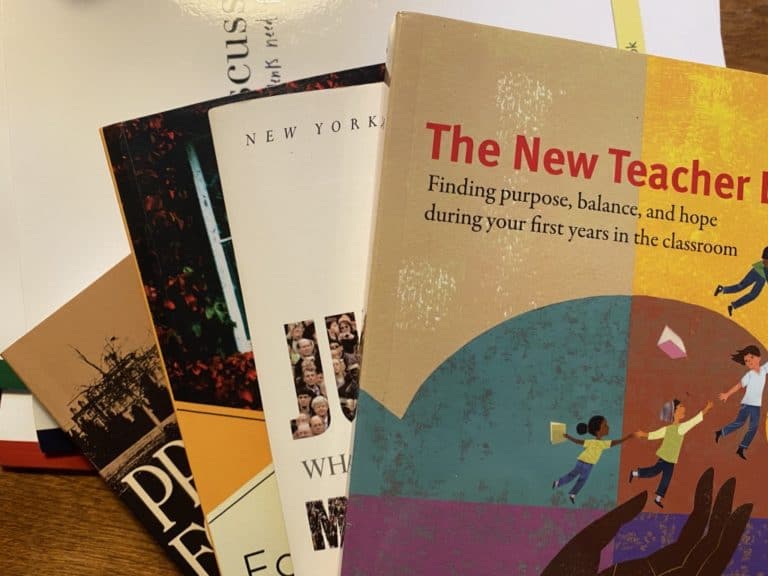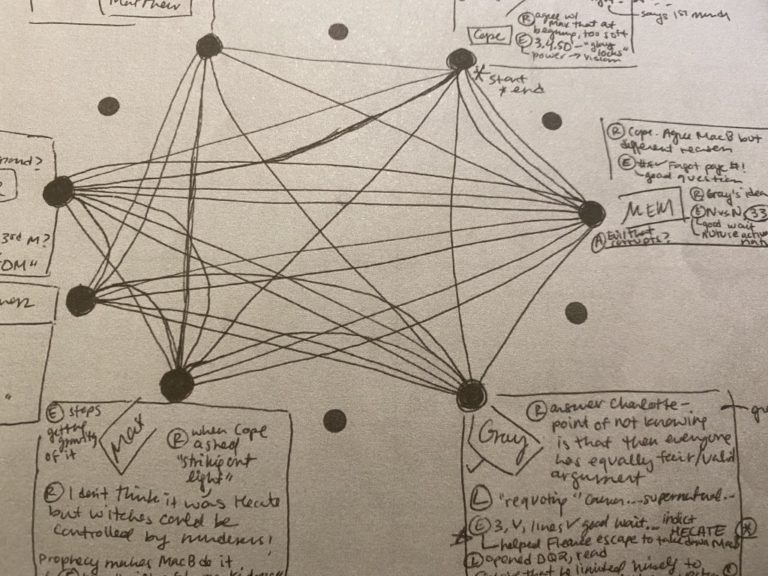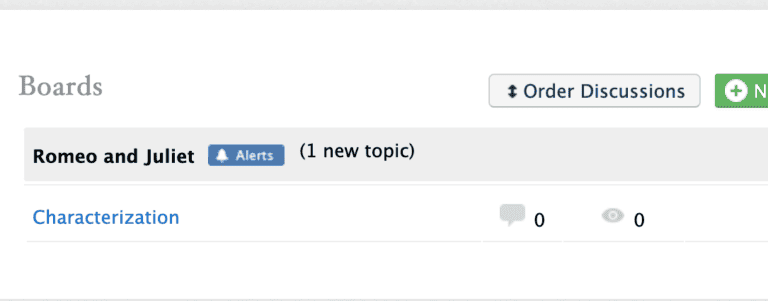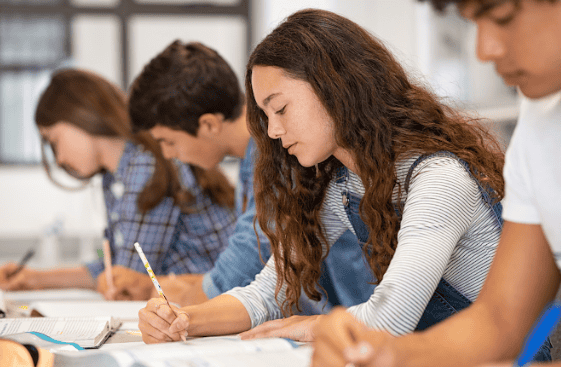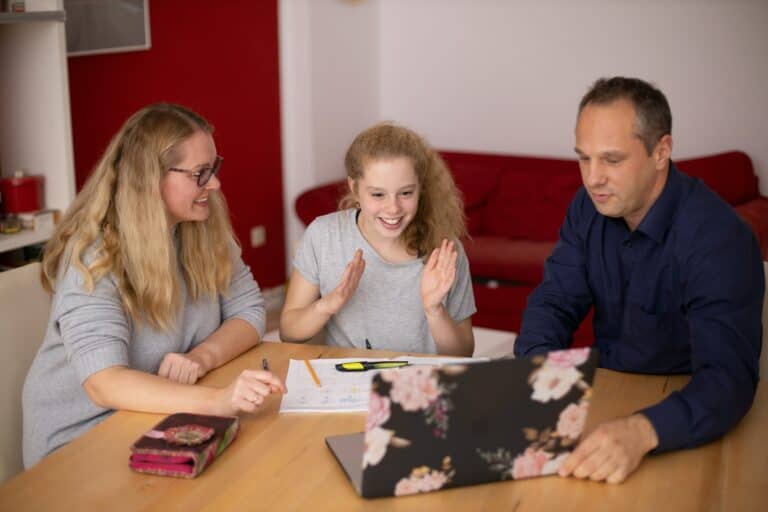R.E.A.L. Teacher Feature: Patrick Farmer
Thank you to Patrick Farmer for sharing his REAL life with us! Patrick is a reading/language arts and social studies teacher at Nativity Preparatory School in Boston, Massachusetts. Here are his thoughts on discussion, R.E.A.L.®, and learning.
Current City, School, Teaching Assignments:
6th grade Reading/Language Arts and Social Studies Lead Teacher at Nativity Preparatory School in Boston.

Describe yourself as a student in three words:
Curious, imaginative, thoughtful.
What first piqued your interest in using R.E.A.L.®?
We would have these intense literature discussions in my classes, and what I found was that a lot of kids would speak, but they were really only speaking to me as the teacher. So everything a kid said was really directed to me – it was a great conversation between me and a given student at a time, but it never really coalesced into a group discussion.
The more I thought about that, the more I realized that the expectations weren’t clear for the students on what discussion looked like. I came across R.E.AL.® at the perfect moment of wondering how I could break down the skills of a discussion, i.e., what does it mean to talk about a book or a history unit or math, for that matter? What are the techniques we use? How is that different from the “turn and talk,” how is that different from each kid raising their hand? What does that look like, what does it feel like?
What do you love about using R.E.A.L.® in your classes?
What I love is that we’re able to break down discussion – take away the mysterious ethos of the incredible class discussion and break it into pieces that we can actually teach. We can say okay, these are the four skills we’re working on, and here’s what we’re working on today. And it has been really cool to see students across levels of ability and experience with discussion really find their place to grow and do it.
How do you orient your students to R.E.A.L.®?
We get set for R.E.A.L. ® in my class with the “Never Have I Ever” activity. I’ll start by saying: raise your hand if you’ve ever spaced out during discussion. Every hand goes up. Raise your hand if you’ve ever realized you have no idea what we’re talking about. Every hand goes up. These kinds of things that are totally developmentally appropriate for middle school and a low bar starting point. Yes, we’ve all been in that situation where there’s class discussion happening, and we’re on another planet.
Once we’ve all agreed that this is a problem, that’s when I introduce some tools to help deal with the problem. And then I introduce the four R.E.A.L. ® skills. That’s our first moment of breaking it down and saying conversation: what does that even mean? That’s a complex idea. What’s being asked of you as a student?
When does it all start coming together for your students?
The first discussion is always messy. Half the groups are off topic, half have no idea what to do. They’re talking about anything else except the book, every time. But that’s where we start. And I let that first discussion run for 15 minutes or so. Then we come back together to debrief, and I say “hey, how did it go?” And kids are so real. They’ll right away say, ‘that was a mess, Mr. Farmer.” They know this – it’s not a secret. And that’s what’s so powerful about action and reflection. And so then we get a list going and say what were some of the problems we encountered. And kids will say things like “we didn’t do the DQ prep” or “we all had the same quote or we got sidetracked by some show we liked or something.” They start thinking about what got in the way of this discussion. And that’s when we return to the four skills.
So we say, ok, you’re in this discussion, and all of a sudden you find yourself talking about what happened at recess. Which skill could you have used to have gotten back to the book? And so it’s helping them do that imaginative work of putting themselves back in their shoes to imagine what paths might have led to other outcomes.
What inspires you? Do you have a favorite quote right now?
What’s keeping me going right now is seeing how excited my students are about the books we’ve been reading lately (The Giver and now Roll of Thunder, Hear My Cry). For a lot of them, it’s the first time they’ve read something and actually cared about it. I love when I overhear them at recess or in the hallway arguing passionately about whether a character made the right choice.
What is your go-to reward for grading a big pile of papers?
A bike ride and an ice cream cone!
And finally, what’s next for you and you class? Where do you hope to take R.E.A.L.® in 2023-24?
What’s really cool is that now at Nativity we’ve got a rising cohort of students who have done R.E.A.L. ® deeply during their formative 6th grade year. I’m excited to see how we can build on that in 7th and 8th grade, when teachers don’t have to spend as much time teaching the basics and instead can really help students build on their discussions to reach increasingly complex insights and understanding.

